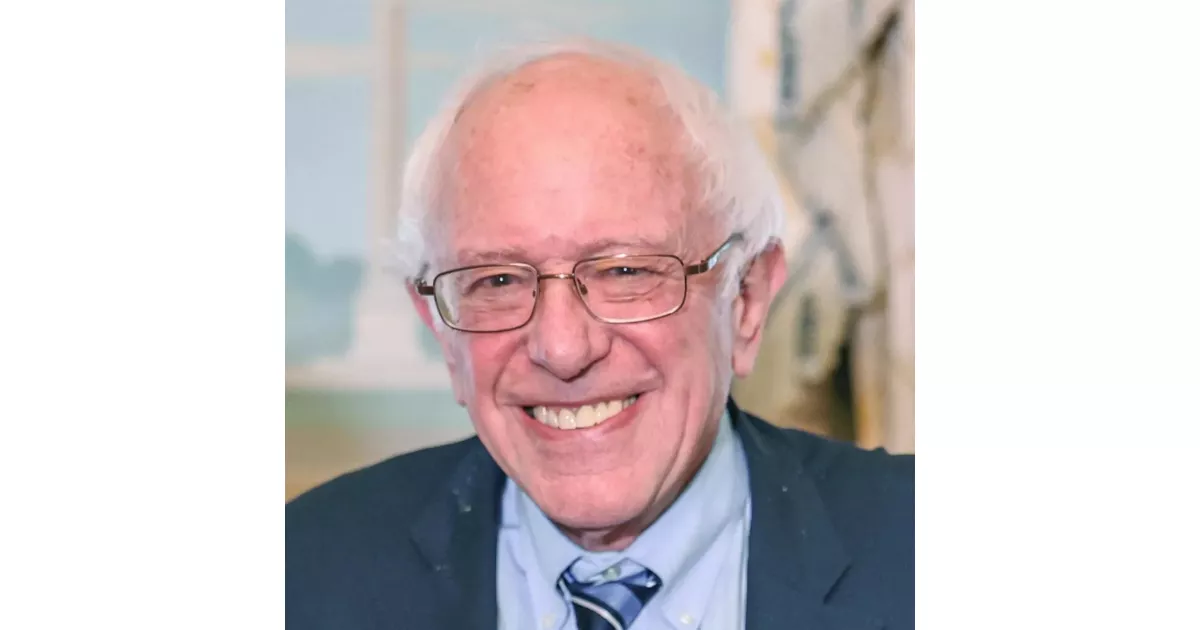Controversies are a part of history. Explore the biggest scandals linked to Bernie Sanders.
Bernie Sanders is a prominent American politician currently serving as a U.S. Senator for Vermont since 2007. As the longest-serving independent in Congress, he closely aligns with the Democratic Party, having caucused with them throughout his career and twice campaigned for their presidential nomination. Sanders is a leading figure in the modern American progressive movement, advocating for policies such as universal healthcare, free college tuition, and a higher minimum wage. He is known for his populist rhetoric and criticism of economic inequality.
1993: Voted against the Brady Handgun Violence Prevention Act
In 1993, while a US representative, Bernie Sanders voted against the Brady Handgun Violence Prevention Act, which established background checks and wait periods for gun purchases.
1996: Voted against funding for CDC research on firearms
In 1996, Bernie Sanders voted against additional funding to the Centers for Disease Control and Prevention for research on issues related to firearms.
2005: Voted for legislation giving gun manufacturers legal immunity
In 2005, Bernie Sanders voted for legislation that gave gun manufacturers legal immunity against claims of negligence.
2007: Opposition to Immigration Reform Bill
In 2007, Sanders helped kill a bill introducing comprehensive immigration reform, arguing that its guest-worker program would depress wages for American workers.
May 2015: DNC announces debate schedule
In May 2015, the Democratic National Committee (DNC) announced a schedule of six debates, which drew criticism for its limited number of debates and timing, with some alleging it was designed to protect Hillary Clinton.
September 2015: NYT coverage of Sanders campaign criticized
In September 2015, The New York Times's ombudsman reviewed the paper's coverage of the Sanders campaign and found it "hasn't always taken it very seriously", noting a dismissive tone and less coverage compared to Trump's campaign.
November 15, 2015: Sanders responds to ISIL attacks in Paris
On November 15, 2015, in response to the Islamic State of Iraq and the Levant (ISIL)'s attacks in Paris, Bernie Sanders cautioned against Islamophobia and said, "We gotta be tough, not stupid" in the war against ISIL, adding that the US should continue to welcome Syrian refugees.
December 2015: Report finds major networks favored Trump coverage
A December 2015 report revealed that major networks like CBS, NBC, and ABC devoted significantly more airtime to covering Trump than Sanders, despite their comparable polling results.
March 2016: Sanders speech not broadcast during Super Tuesday III
On March 15, 2016, during Super Tuesday III, major news outlets broadcast the speeches of Trump, Clinton, Rubio, and Cruz, but omitted Sanders's rally speech in Phoenix, despite it being larger than the others. Meanwhile, other media promoted the narrative that the contest between Sanders and Clinton was "heating up".
July 2016: DNC Emails Leaked
In July 2016 some of the Democratic National Committee (DNC) emails leaked to the public showed that the committee leadership had favored Clinton over him and had worked to help Clinton win the nomination.
July 2016: DNC emails leak, revealing favoritism towards Clinton
In July 2016, a leak of Democratic National Committee's emails showed DNC officials favoring Clinton over Sanders, with discussions about using Sanders's irreligious views as a campaign issue.
2016: Sanders Mentioned Hillary Clinton's Popular Vote Win
In 2016, after a CNN debate, Bernie Sanders noted that Hillary Clinton beat Donald Trump by 3 million votes in the popular vote. This comment was made in response to a question about whether he believed a woman could win the presidency.
2017: Criticized Republican tax cuts passed through reconciliation
In March 11, 2021, Bernie Sanders supported Senate Democrats' decision to use budget reconciliation, a procedure used to avoid filibusters, to pass the American Rescue Plan Act of 2021, despite having criticized Republicans' use of reconciliation to pass the 2017 tax cuts.
January 2018: Criticized Trump in response to State of the Union Address
In January 2018, Bernie Sanders gave an online reply to Trump's State of the Union address, calling Trump "compulsively dishonest" and criticizing him for initiating "a looming immigration crisis" by ending the Deferred Action for Childhood Arrivals program.
February 2018: Mueller investigation concludes Russians aided Sanders
In February 2018, Robert Mueller's investigation found that Russians spread false information to help Sanders and Stein in the 2016 elections, a conclusion Sanders rejected. Sanders questioned the Clinton campaign's inaction on Russian interference.
October 2018: Assassination of Jamal Khashoggi
In October 2018, following the assassination of Jamal Khashoggi, Sanders' bill to end US support for the Saudi-led military intervention in Yemen attracted bipartisan support after intelligence agencies determined Saudi Arabian crown prince Mohammad bin Salman ordered the assassination.
2018: Opposition to Trump Administration Budget
In 2018, Sanders opposed the 2018 United States federal budget proposed by the Trump administration, calling it "a budget for the billionaire class".
April 6, 2019: Sanders Participates in Fox News Town Hall
On April 6, 2019, Bernie Sanders participated in a Fox News town hall. It attracted over 2.55 million viewers. The appearance increased Fox News viewers by 24% overall and 40% in the 25-to-54-year-old demographic, surpassing the ratings of all other Democratic presidential candidate town halls that year.
May 1, 2019: Sanders criticizes China trade deal
On May 1, 2019, Sanders tweeted that America has lost over three million manufacturing jobs since the China trade deal. Sanders stated his opposition to the trade deal, and stated that China is one of America's major economic competitors.
January 6, 2021: Commented on the attack on the United States Capitol
On January 6, 2021, after Trump supporters attacked the United States Capitol, Bernie Sanders commented that Trump would "go down in history as the worst and most dangerous president in history."
February 23, 2021: Opposed Biden's cabinet pick of Tom Vilsack
On February 23, 2021, Bernie Sanders became the first senator in the Democratic caucus to oppose one of Biden's cabinet picks, voting against Tom Vilsack's confirmation as Agriculture Secretary due to concerns about Vilsack's past work as a lobbyist and ties to large corporations.
March 2025: Sanders' views on Biden and Trump immigration policies
In a March 2025 interview, Sanders admitted that Biden failed to properly curb illegal immigration and commended Trump for strengthening border immigration policies, while also criticizing mass deportations and calling for comprehensive immigration reform.
June 2025: Reacted to Trump's bombing of Iranian nuclear sites
In June 2025, Bernie Sanders reacted to news of Trump's bombing of Iranian nuclear sites by saying: "The American people are being lied to again today. We cannot allow history to repeat itself".
September 15, 2025: Accused Israel of committing genocide in Gaza
On September 15, 2025, Bernie Sanders said that Israel is committing genocide in Gaza, becoming the first US senator to make such comment.
September 2025: Criticized Democratic Party officials for lack of support for Mamdani
In September 2025, Bernie Sanders criticized Democratic Party officials for their perceived refusal to support Mamdani after his victory in the New York City mayoral primary.
September 2025: Sanders Accuses Israel of Genocide
In September 2025, Bernie Sanders stated that "The intent is clear. The conclusion is inescapable: Israel is committing genocide in Gaza."
Mentioned in this timeline

Joe Rogan is an American podcaster UFC color commentator comedian...

Donald John Trump is an American politician media personality and...

Jesse Jackson is an American civil rights activist politician and...

Pope Francis served as the head of the Catholic Church...

Barack Obama the th U S President - was the...
Fox News Channel FNC is a conservative American news and...
Trending

41 minutes ago Spielberg's E.T. and Reese's Pieces, Free Movies in Cincinnati, Ohio film event.

41 minutes ago Tyler, the Creator critiques J. Press; designer Jack Carlson expresses thrill over discussion.
42 minutes ago NASA alters Artemis program roadmap, SpaceX Starship faces uncertainty for Artemis 3.

42 minutes ago Dame Helen Mirren's Beauty, Confidence Secrets Unveiled.

42 minutes ago Timothée Chalamet Attends 2026 Actor Awards with Mom; Kylie Jenner Absent.
2 hours ago Neemias Queta shines: NBA breakout with Celtics, representing Portugal with pride.
Popular

Jesse Jackson is an American civil rights activist politician and...

Hillary Diane Rodham Clinton is a prominent American politician lawyer...

XXXTentacion born Jahseh Dwayne Ricardo Onfroy was a controversial yet...

Kashyap Pramod Patel is an American lawyer who became the...

Jim Carrey is a Canadian-American actor and comedian celebrated for...

Michael Joseph Jackson the King of Pop was a highly...
